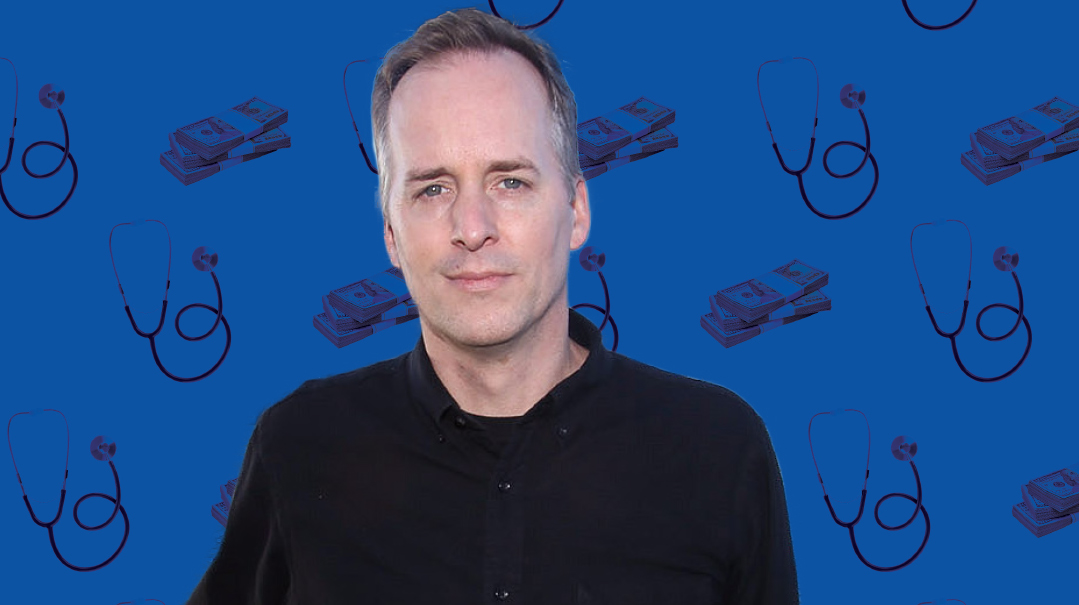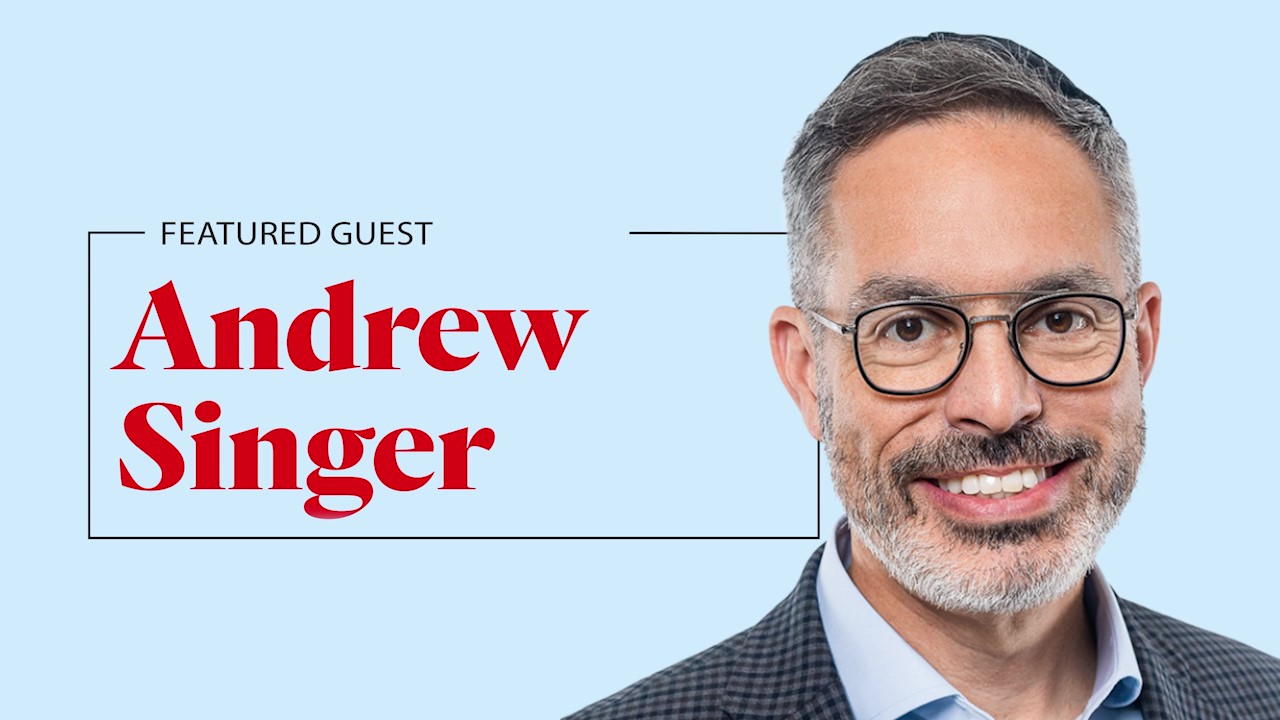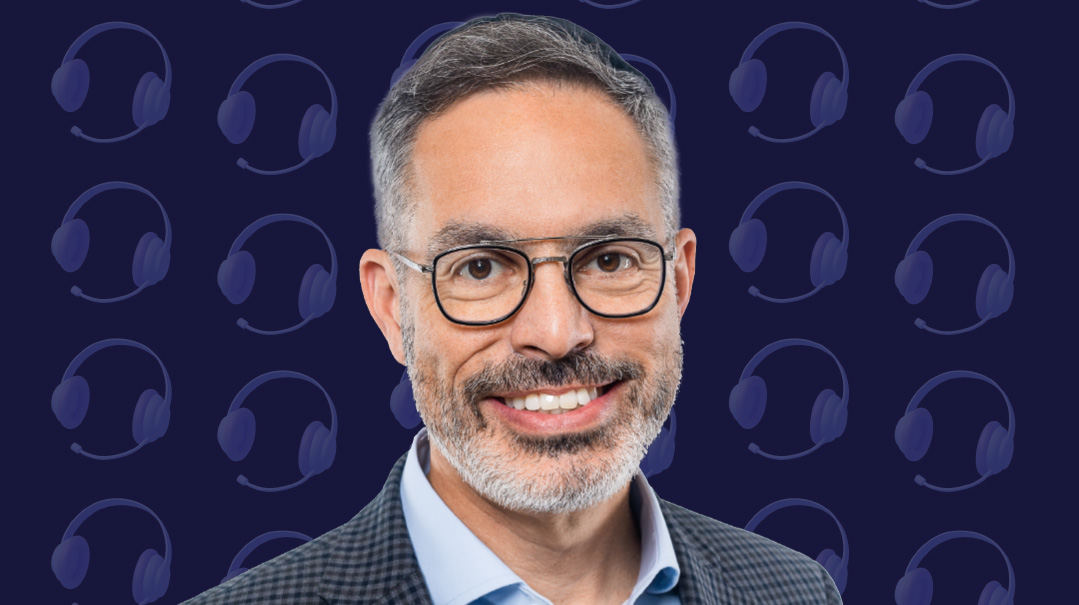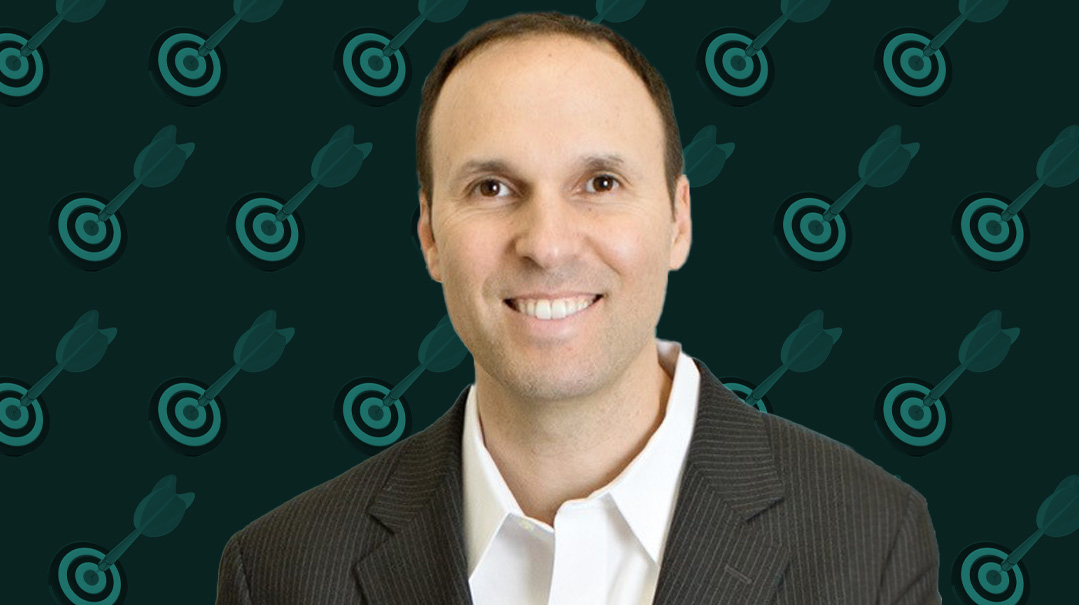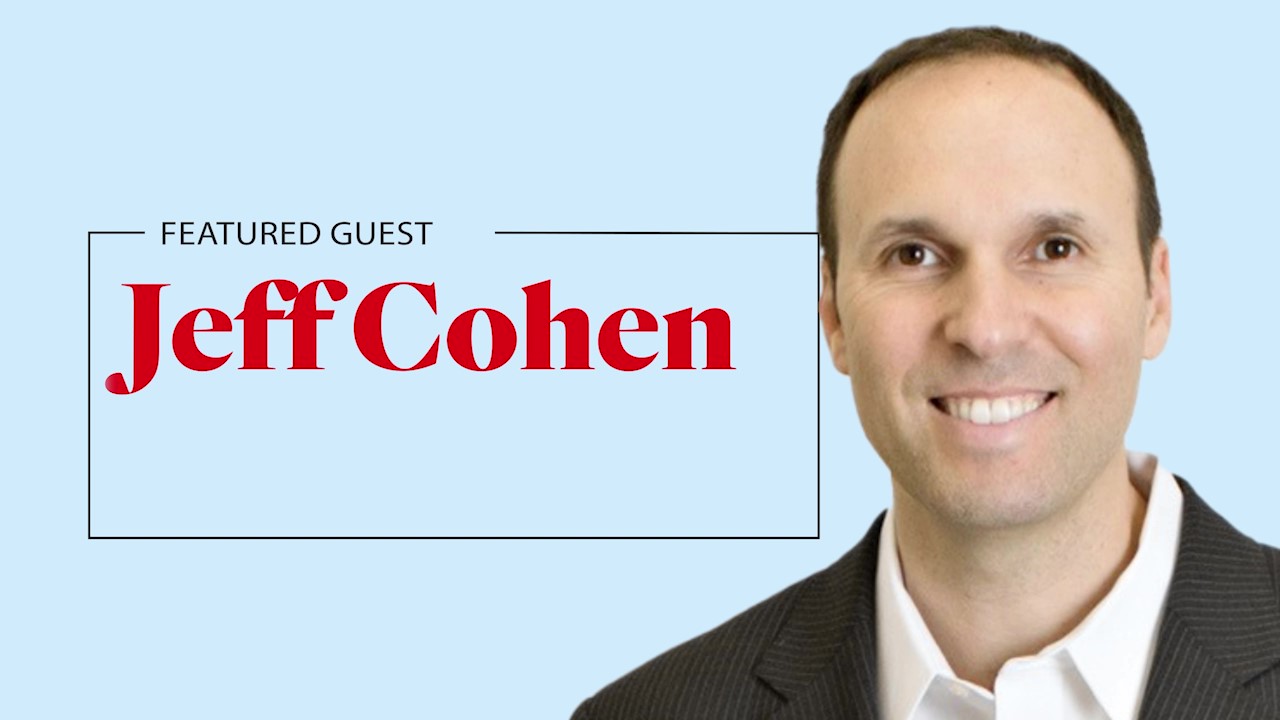A Home of Your Own: with Evan Templeman
| May 9, 2023Evan Templeman explains how you can buy a house without breaking the bank
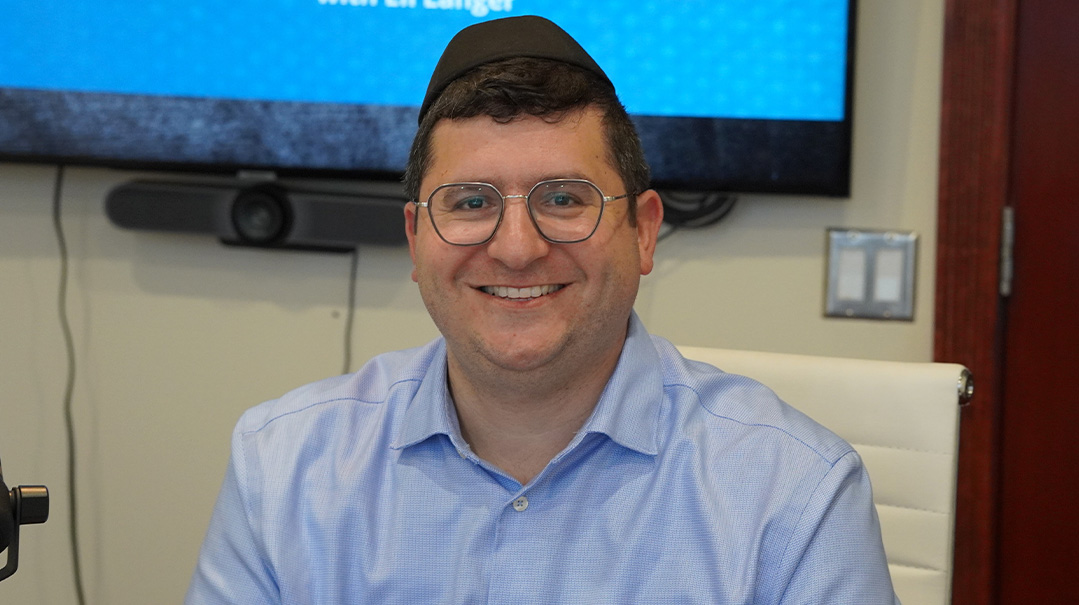
Evan Templeman is a branch manager at CrossCountry Mortgage. He got his foot in the door over a decade ago through his father-in-law, who had a few connections in mortgage companies. The industry spoke to him from day one, and now, 15 years later, he’s still just as passionate about what he does.
Evan has ridden the waves in an industry that’s seen drastic changes. When Kosher Money first recorded a podcast episode with Evan, mortgage rates were at an all-time low. Now that they’ve risen — considerably — we touched base again to get the updated how-to for home-buyers in the American market.
Can you break down the home-buying process?
Preapproval on your mortgage is an absolute must; it’s the only way a real estate agent will entertain an offer from a potential buyer. When you submit a preapproval to a realtor, you’re showing them, hey, I’m a legitimate buyer.
To obtain a preapproval on a loan, you need to call a bank or lender and submit basic documentation and information about your file. What is your purchase price? How much do you have available to put down?
Assuming your credit is good, you have the requisite down payment based on the loan you want to apply for, and your income will support that loan amount, you should be cleared for the preapproval, which you can then submit to the realtor.
Do you see a wide range of personalities when it comes to money matters?
Absolutely. There’s a complete spectrum in personalities and how people manage their finances. You have people who have been saving for years versus people who have to scramble for the funds.
The interesting thing I’ve found is that people who are overly cautious about saving money actually have a harder time parting with their money for the down payment. They’re used to seeing a decent chunk of change in their bank statement, and when you buy your first home, you’re usually depleting that.
So if you’re overly cautious, you’ll be better prepared, but may have a harder time adjusting afterward, versus the people who never experienced the security of a large sum in the bank.
Other than the down payment, what should people expect when it comes to fees?
Let’s break down all the fees associated with buying a house. People can grossly underestimate closing costs and then the settlement fees, which are related to the escrow. I would say they can add up to anywhere between two to five percent of your loan amount.
So if you took a loan amount of $500,000, you would want to figure two to five percent of that to cover closing costs and escrows.
You’ll also have an application fee. Then there’s the title, the attorney fee, and the appraisal fee. If you’re in New York, you’re going to have the mortgage tax, which is close to two percent.
How much liquidity do I need to buy a home?
It used to be 20 percent of the home value. When you apply for a loan, you work off the purchase price or the appraised value, whichever is lower. So let’s say a house costs $100,000. You would need $20,000 in cash to buy that home.
But that’s the old way of thinking, though many people don’t realize that. Over the years, banks have added products, and you pretty much can get the same rate while putting down as little as three percent.
There are requirements income-wise and loan-amount wise, but your typical first-time home buyer isn’t usually looking for a jumbo loan, and there is a significant number of products that you could apply for where you put down as little as three percent.
Still, the three percent product isn’t so popular, because people try to avoid mortgage insurance, which is a penalty a borrower must pay when putting down less than 20 percent.
It’s really not as scary as it sounds, though. For most first-time purchasers, the biggest hurdle is the down payment. Mortgage insurance opens the doors for cash-strapped borrowers, and creates more opportunities for people to get into homes.
What percentage of the people you work with have or get some sort of liquidity from their parents or in-laws?
I usually get the question phrased as follows: “I know so and so. I make just as much as him. How is he buying that house?”
In Lawrence, where I live, it’s very common to see significant gifts. But that’s only a percentage of the business I do, usually when looking at $2 million homes. When dealing with homes in the range of hundreds-of-thousands, people make it work. The husband and wife work until they can scrape it together.
When should someone buy a home? How important are interest rates versus the value or the prices of the home?
I don’t think someone should buy a house just because interest rates happent to be low. A house is a long-term investment, and I think a person should buy a house when he’s financially secure, has job stability, and feels comfortable that it’s the right time.
As far as interest rates being a factor, my understanding is that low interest rates can lead prices to go up because buyers are eager to take advantage of the rates. If interest rates go up, what will eventually happen is that some of the housing prices will come down. That’s why I don’t get too caught up in the interest rate — it somewhat evens out.
What percentage of someone’s take-home salary should be allocated toward the cost of housing?
When I take applications, I sometimes wonder, How in the world is this person going to make his payments? And what I’ve learned from experience is everybody’s take-home salary is different. So many people have different sources of income — and I can’t calculate that.
When it comes to deciding how much you can put down, the guidelines don’t take living expenses into account. So if a person makes $120,000 a year, you are typically allowed to use 49 percent of that on a monthly basis, which comes to around $6,000 a month. Is what’s left enough for your miscellaneous expenses, or do you need to put down less?
Walk us through the math of “debt.” How much debt can people go into?
We use a term called debt-to-income. Typically, the bank will allow a monthly mortgage payment around 49 to 50 percent of your gross monthly income.
Now, we have to remember that the underwriting guidelines were not made for the Jewish community. If you tell me that what’s on paper is truly all the income you have — and you’d need to put 50 percent toward your mortgage — you will probably not make it.
That being said, when an underwriter reviews your file, they’re only reviewing income that is eligible for the mortgage. However, that’s often just part of the picture, and people may have other resources from which to come up with the monthly sum.
I also want to add that when, for example, you take a family income of $150,000, their 50 percent would be $6,250 as disposable income each month. That may not be enough. Now, if you have a $300,000 household income, you now have $12,500 on top of your 50 percent.
It’s difficult to list a set ratio for the standard frum family, because every family needs to know what they’ll spend outside the mortgage. Family size and lifestyle make a difference. There’s also no way for someone else to know how much extra income you want at your disposal. What do you like to do for vacation? Are you someone who needs to go out often?
It’s important to sharpen a pencil and figure out what you need versus what you can give up, to come up with answers to these questions. At the end of the day, it’s a highly personalized decision.
How much money you make is a big piece of the loan-approval process. What else are mortgage, brokers, lenders, and banks looking at for loan approval?
I break it down into the 3 Cs: credit, capacity, and collateral. We’ll explain further.
You mentioned that people should monitor their credit scores — and that their score might be a reason to wait before they buy a home. What are the markers for that? When does a score indicate that someone shouldn’t buy, and what score is high enough to effectively give a go-ahead to purchase?
The range we usually use is 620–780. If you’re hovering around 620, that may impinge on what your max loan can be. If a borrower comes to me and says, “I only have five percent to put down and my score is 620,” he may not even have a loan product available. At that point, he may have to borrow from family or scrape together funds that he didn’t otherwise plan on using.
Now, I don’t think it’s a terrible decision to buy with a weak credit score. All it means is that your rate will be higher. Right now, because rates are so high, we have reason to believe they will come down. If you time it correctly, as your credit improves and rates decline, you may be able to refinance and really improve your rate. If someone can’t get the loan size they want, it shouldn’t necessarily hold them back. It might be worth it to buy anyway at higher rates. That’s where good advice will help you.
What is collateral, and why is that important?
Collateral is the value of the property. Look at it from the perspective of the lender, which in this case is the bank. They obviously need to protect themselves if something goes wrong. Their protection is the collateral.
The more you put down, the more equity you have, which makes the banks more comfortable that should something happen, they can recoup that loan balance.
It’s extremely important for a bank to see the collateral, and they want to make sure that this property is appraised properly. They review the appraisal to make sure that the house is truly the value that the appraiser is putting down on the report.
What are things couples should be discussing or keeping in mind when it comes to first-time home buying?
Your credit score. Often when you’re trying to arrange the preapproval, the loan officer says that your credit is lower than it should be. If you’ve never missed a payment, it might be a mistake or something else that’s fixable.
But the more of a rush job you need, the more expensive it will be. So it’s extremely wise for people to know their scores in advance.
Do most of your clients take a 15- or 30-year mortgage?
Over 90 percent of my clients take a 30-year fix. I always recommend that over a 15-year fix, because I’d rather clients be prepared in case things change and they can’t keep their commitment to the higher payment. And you can always prepay if you want to, which allows you to benefit from the lower interest rate but still pay it off after 15 years.
Do you see people who bought a 15-year loan and then had to switch out for a 30-year one?
Yes. They didn’t anticipate increased expenses. Generally speaking, first-time buyers will find their expenses do go up. (Think tuition as kids are getting older, etc.) Your income will hopefully go up, too, but it’s not always in line.
In today’s climate, with interest rates being as high as they are, are there changes in the recommendations of a 30- versus 15-year mortgage?
People now are even less inclined to take the 15-year mortgage. And a new factor has come into play with ARMS — the adjustable rate mortgages. They’re not doom and gloom like people think they are. If a borrower understands it, it can very often be the right financing tool for his home purchase.
Very simply, it allows the borrower to take a lower rate than the going 30-year fix. Instead, you take an adjustable rate that’s fixed for a period of time, which can save a few hundred dollars a month. It gives the borrower the opportunity to take advantage of a low rate for X number of years.
If a borrower gets into a seven-year ARMS, he can either move, refinance, or pay it off, so he’s no longer in the mortgage by the time it adjusts.
If people can afford it, would you recommend that they make more than their required number of payments so they shorten the lifespan of the mortgage? If they do that, how much would they save?
The equation is simple. If you make a payment once a month, you’ll end up making 12 payments a year. If you pay every two weeks 26 times, you’re going to make 13 payments a year. If you make one extra payment a year, you will shorten the loan by about five years. It doesn’t work that way at the end. If you come to year 24 and make 24 extra payments, it won’t save you as much as if you paid them along the way.
Do you see people buying homes outside of their means?
Typically speaking, no — even though it might seem that way from the outside. I see that myself. I’ll look at their income and wonder how they’ll make it all work. But their Yamim Tovim are covered by a family member, or they have a deal on tuition. Those are things that I can’t calculate.
Are the home-buying trends significantly different in the frum community versus the secular ones?
In the frum community, people are buying younger, and they’re putting down more money. I attribute that to many home buyers receiving gifts from parents, in-laws, or siblings. That’s something that’s so much more prevalent in our community.
You mentioned that a recent change affecting the market is that the appraisal no longer needs to support the purchase price. Can you explain what that means and the impact?
We discussed that the bank would only do certain loan to value deals depending on the product. Let’s say a person was hoping to put down 20 percent. If a guy is buying a house for $875,000, at 20 percent his down payment is $175,000. He’ll get a $700,000 loan, with no mortgage insurance. He has an 80 percent loan to value.
Now, what happens if the appraisal comes in short? It comes in at $825,000. The bank is going to use this lower price, so now your loan amount is $660,000. If you’re trying to avoid mortgage insurance, you now have to bring an extra $40,000.
Very often that’s a deal breaker. Most of the time when I’m dealing with a home buyer, they come to me saying, “I have this amount and that’s it.” They don’t have additional resources.
But there are definitely ways to maneuver when you have this conflict. You could literally buy out the entire mortgage insurance, which in this case would be less than $2,500.
KEY TERMS
Interest Rates
The interest rate is probably one of the most important pieces of the puzzle when you apply for a loan, and it will dictate your monthly payment. The lower the rate, the lower your monthly payments.
Mortgage Insurance
Mortgage insurance comes into play when you put down less than 20 percent as a down payment, depending on your credit. It’s a very low monthly payment compared to the rest of the mortgage. If you had good credit, your mortgage insurance on a $100,000 loan could literally be $50 a month. And that fee only applies until the loan goes under 80 percent.
A young couple doesn’t have to give up their dreams of buying because they don’t have the 20 percent. Maybe that $50 a month is worth it.
(Originally featured in Mishpacha, Issue 960)
Oops! We could not locate your form.

